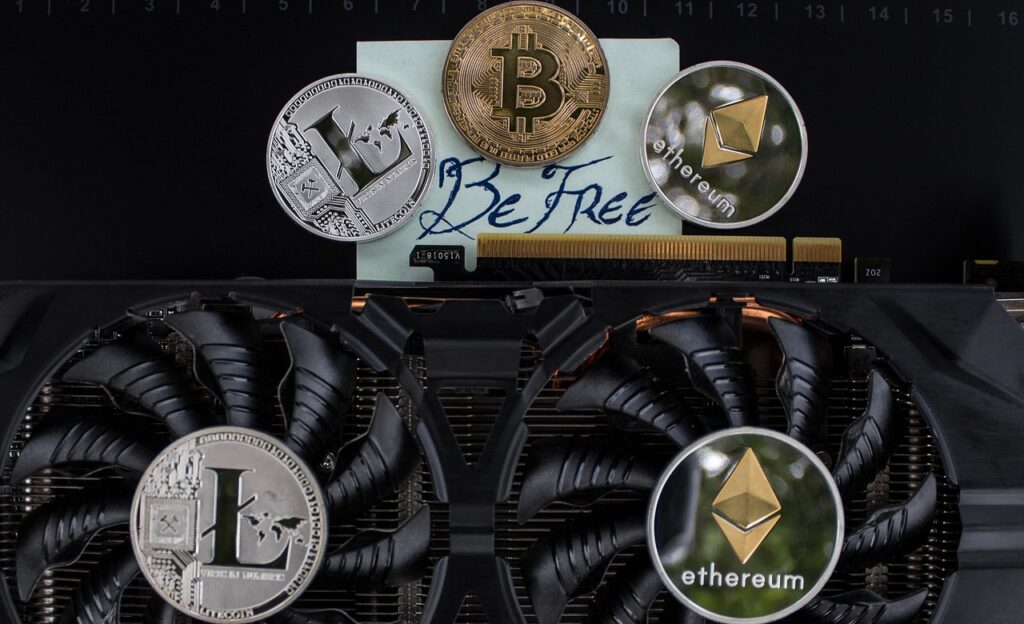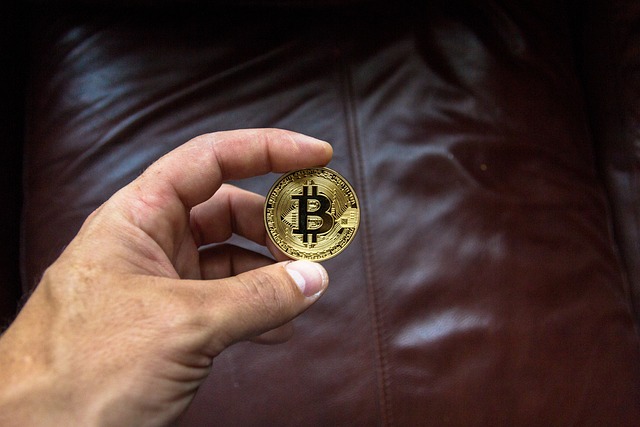Investing in DeFi? Don’t Ignore These Potential Risks
Investing in DeFi? Don’t Ignore These Potential Risks

Decentralization and Security Risks
The decentralized nature of cryptocurrency and blockchain technology brings with it a set of security risks that investors need to be aware of. Unlike traditional financial systems, which are typically centralized and governed by regulatory bodies, decentralized platforms operate on a peer-to-peer basis, allowing individuals from all over the world to participate without any central authority. While this offers greater transparency and removes the need for intermediaries, it also exposes users to potential vulnerabilities.
One major security concern is the risk of hacking and theft. Since blockchain transactions are irreversible, once funds are transferred to the wrong address or a user’s private keys are compromised, it is nearly impossible to recover the lost assets. Hackers and malicious actors are constantly seeking to exploit weaknesses in the system, and even the most advanced security measures can sometimes be breached. This underscores the importance of securing one’s digital assets with robust encryption, multi-factor authentication, and storing private keys offline.
Smart Contract Vulnerabilities
Smart contracts, while being the backbone of various decentralized applications (DApps), are not immune to vulnerabilities. These vulnerabilities can present serious risks to both developers and users. One major concern is the possibility of coding errors in the smart contract. Due to the complex nature of coding, even minor mistakes can have far-reaching consequences. When a vulnerability is exploited, it can result in financial losses or even the complete collapse of the application. This can be a significant setback for developers who have invested time, effort, and resources into building their DApps.
Furthermore, another area of concern lies in the lack of standardized security measures for smart contracts. Unlike traditional contracts, which are often reviewed and approved by legal experts, smart contracts are often released without proper auditing. This lack of regulation and oversight leaves them susceptible to various vulnerabilities. In addition, because smart contracts are immutable once deployed on the blockchain, any vulnerabilities discovered post-deployment can be very challenging to rectify. This adds an additional layer of risk, as users may unwittingly interact with DApps that have unresolved vulnerabilities. As a result, it is crucial for developers and users alike to remain vigilant in understanding and addressing smart contract vulnerabilities.
Lack of Regulation and Oversight
The lack of regulation and oversight in the cryptocurrency market is a cause for concern among investors and experts alike. With no centralized authority or regulatory body to govern the market, it becomes difficult to ensure a safe and fair playing field for all participants. This leaves room for unscrupulous individuals and fraudulent activities to thrive, putting investors at risk of scams and hacks.
Moreover, the absence of proper regulation also leads to market volatility and uncertainty. Without clear guidelines and standards, it becomes challenging for investors to assess the viability and potential of cryptocurrency projects. This lack of oversight creates a breeding ground for speculative investments, which can lead to sudden price fluctuations and potential losses. As a result, investors face significant risks when navigating the cryptocurrency market due to the absence of robust regulatory frameworks.
Uncertain Market Volatility
The cryptocurrency market is notorious for its rollercoaster-like volatility. Prices can swing wildly within a matter of minutes, leaving investors on edge and unsure of what the future holds. This uncertain market volatility can make it challenging for traders to make informed decisions and predict potential price movements.
The unpredictable nature of the market means that even experienced investors can find themselves at the mercy of sudden price fluctuations. While some may see this as an opportunity to make quick profits, others may find themselves losing substantial amounts of money. This volatility is often driven by factors such as market sentiment, regulatory announcements, and even large-scale hacking incidents. As a result, it is crucial for individuals to approach the cryptocurrency market with caution and carefully consider the potential risks before diving in.
Impermanent Loss in Liquidity Pools
Liquidity pools are an integral part of decentralized finance (DeFi), allowing users to provide liquidity for various tokens and earn rewards. However, one of the risks associated with liquidity pools is the concept of impermanent loss. This term refers to the potential loss that liquidity providers may experience when the value of the tokens in the pool changes.
Impermanent loss occurs due to the nature of how liquidity pools work. When users provide liquidity, they are essentially depositing an equal value of two different tokens into the pool. As the market price of these tokens fluctuates, the value of the tokens in the pool may become imbalanced. This imbalance exposes liquidity providers to the risk of losing out on potential gains if the value of the tokens they deposited increases outside the pool. In simple terms, impermanent loss can be seen as an opportunity cost and is particularly common in volatile markets.
Potential for Hacks and Scams
In the volatile world of decentralized finance (DeFi), one of the biggest concerns for investors is the potential for hacks and scams. As the market continues to evolve, new vulnerabilities emerge, putting user funds at risk.

These smart contract vulnerabilities can lead to various types of attacks, such as fake projects, rug pulls, and phishing scams. Inexperienced investors may fall victim to these schemes, resulting in the loss of their hard-earned money. Unlike traditional financial systems, where regulatory bodies provide some level of protection, DeFi operates in a largely unregulated space, making it easier for scammers to operate undetected. Therefore, it is crucial for investors to exercise caution and conduct thorough research before participating in any DeFi project or providing liquidity to a protocol.
Lack of Investor Protection
Investing in the decentralized finance (DeFi) market can be a thrilling experience with the potential for lucrative gains. However, one of the major concerns that investors face is the lack of investor protection. Unlike traditional financial markets that are tightly regulated, the DeFi space operates in a more decentralized and often unregulated manner. This means that if things go wrong, investors may find themselves with limited recourse or legal protection.
In the absence of investor protection mechanisms, fraudulent activities and scams can thrive in the DeFi ecosystem. Due to the anonymous nature of transactions and the lack of oversight, it becomes easier for bad actors to exploit unsuspecting investors. The decentralized nature of the market also makes it challenging to hold anyone accountable for their actions. As a result, investors need to exercise caution and conduct thorough due diligence before committing their funds to any DeFi project.
Smart Contract Coding Errors
One of the major risks associated with decentralized systems is the occurrence of smart contract coding errors. Smart contracts are self-executing agreements written on blockchain platforms, and any flaw or mistake in their coding can have serious consequences. These errors can result in unintended outcomes or vulnerabilities that can be exploited by malicious actors.

Even seemingly minor coding errors can have far-reaching implications. A simple mistake in the code can leave vulnerabilities that hackers can exploit to manipulate transactions, steal funds, or disrupt the entire system. Moreover, fixing coding errors in smart contracts can be a complex and time-consuming process. Once a smart contract is deployed on the blockchain, it becomes immutable, making it difficult to rectify any errors or vulnerabilities discovered afterward. This lack of flexibility poses a significant challenge in ensuring the integrity and security of smart contracts. Developers and users must be cautious and thorough in their review and testing processes to minimize the risk of smart contract coding errors.
Difficulty in Assessing Project Viability
Evaluating the viability of a project in the decentralized space can often be a daunting task. With the lack of centralized authority and regulation, it’s challenging to determine whether a project is worth investing time and resources in. The absence of clear guidelines and oversight makes it difficult to assess the legitimacy and long-term potential of these initiatives.

In addition to the absence of traditional evaluation mechanisms, the decentralized nature of these projects also poses challenges in terms of assessing their technical capabilities and development roadmap. Many projects in the cryptocurrency space rely on smart contracts to execute their operations. However, the complexity of these contracts and the potential for coding errors make it hard to predict whether the project will function as intended. Without a clear understanding of the technical aspects and expertise in contract auditing, investors are left guessing the feasibility of the project’s goals.
Liquidity Risks in Exiting Positions
Exiting positions in the decentralized financial markets can present liquidity risks that investors need to be aware of. When the market experiences sudden price fluctuations or high volatility, there may be a lack of buyers or sellers, resulting in a reduced ability to quickly and efficiently exit a position. This can lead to longer waiting periods or even an inability to liquidate assets at desired prices.
Furthermore, the decentralized nature of these markets adds another layer of complexity to liquidity risks. Unlike centralized exchanges where a central authority facilitates trades, decentralized platforms rely on liquidity pools and automated market makers. The availability of liquidity, especially in smaller tokens or platforms, can be limited, making it challenging to find buyers or sellers when exiting a position. In such cases, investors may encounter slippage, where the execution price of an order differs from the expected price, resulting in increased losses or diminished gains. It is essential for investors to carefully consider these liquidity risks and assess their risk tolerance before engaging in decentralized financial markets.
What are liquidity risks in exiting positions?
Liquidity risks in exiting positions refer to the potential challenges and uncertainties faced when trying to sell or close a financial position, such as a cryptocurrency investment or participation in a liquidity pool.
What are the risks associated with decentralized platforms?
Decentralized platforms carry the risk of security breaches and hacks, as they operate on a distributed network without a central authority overseeing transactions and user actions.
Can you explain the concept of smart contract vulnerabilities?
Smart contract vulnerabilities refer to weaknesses or flaws in the code of automated contracts that can be exploited by malicious actors, leading to financial losses or unauthorized access to funds.
Why is the lack of regulation and oversight concerning?
The lack of regulation and oversight in the cryptocurrency and decentralized finance space means that there are limited safeguards in place to protect investors and users from fraudulent activities, scams, and market manipulation.
How does uncertain market volatility affect liquidity risks?
Uncertain market volatility can make it challenging to accurately assess the value of assets and execute trades at desired prices, potentially leading to increased liquidity risks when attempting to exit positions.
What is impermanent loss in liquidity pools?
Impermanent loss refers to the potential loss of value that liquidity providers may experience when participating in a liquidity pool due to the fluctuating prices of the underlying assets.
What are the risks associated with hacks and scams in the cryptocurrency space?
The cryptocurrency space is susceptible to hacks and scams, where malicious actors exploit vulnerabilities in platforms or deceive investors to gain unauthorized access to funds or steal assets.
How does the lack of investor protection impact liquidity risks?
The absence of investor protection mechanisms, such as insurance or regulatory safeguards, increases the risk of financial loss or fraud when attempting to exit positions in decentralized platforms or cryptocurrencies.
What are smart contract coding errors?
Smart contract coding errors are mistakes or flaws in the programming code of automated contracts, which can lead to unintended consequences or vulnerabilities that can be exploited by attackers.
Why is it difficult to assess project viability in the decentralized finance space?
Assessing project viability in the decentralized finance space can be challenging due to the lack of standardized metrics, limited transparency, and the fast-paced nature of the industry, making it harder to evaluate the long-term potential and sustainability of projects.
How can one mitigate liquidity risks in exiting positions?
Mitigating liquidity risks in exiting positions can be achieved by conducting thorough research, diversifying investments, being cautious of platform vulnerabilities, setting realistic exit strategies, and staying updated on market trends and regulations.
Todays Featured Product:
Buy, exchange and grow your crypto securely with a Ledger hardware wallet, combined with the Ledger Live app. It’s never been easier to keep your crypto safe and accessible. Buy direct from Ledger.com and get todays Special Offers Here.




